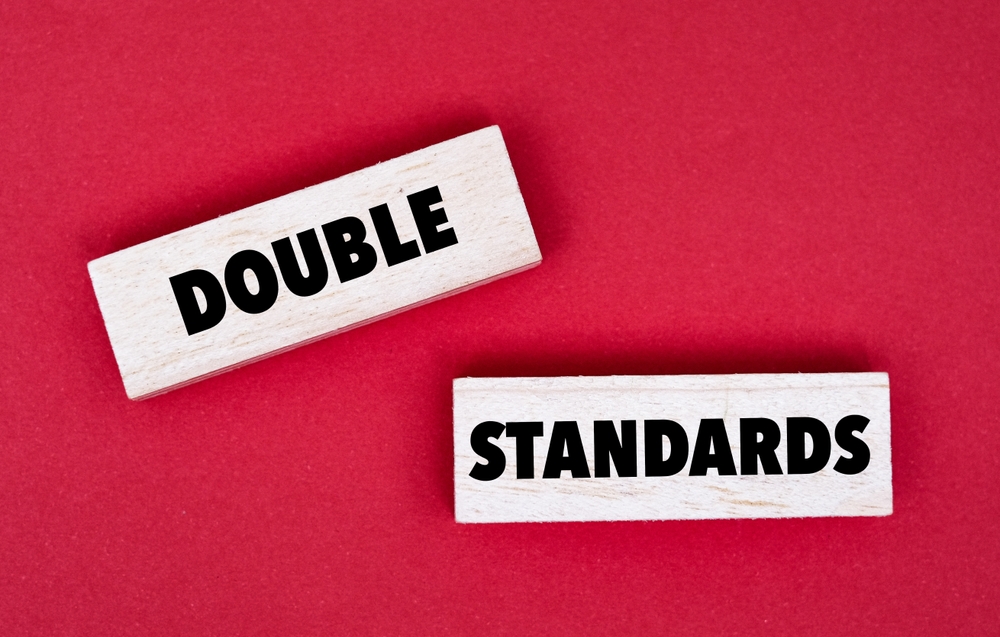We’ve all encountered those judgy types who just can’t help pointing out what’s wrong with everyone and everything. These constant critics are exhausting to deal with, and their behavior can zap the joy out of any interaction. If you find yourself rolling your eyes or biting your tongue around one of these negative nitpickers, you’ll definitely relate to this list.
1. They Nitpick Everything

Nothing is ever good enough for someone whose default position is to criticize. They have a knack for finding flaws in the most minor details, and they’re quick to point them out. Whether it’s the way you’ve arranged your living room, how you prepared your coffee, or how you approached a group project, they always offer an uninvited critique.
2. They Rarely Offer Solutions

Criticizers are quick to point out what’s wrong but slow to offer solutions. It’s easy to tear something down, but when they don’t provide constructive feedback or a better alternative, it is maddening. This habit can leave you feeling deflated and annoyed by their critique when they don’t have anything helpful to add.
3. They Always Have to Be Right

People who constantly criticize are self-righteous and have a strong underlying need to always be right all the time. They’ll argue their point to the bitter end, even if they are wrong or it means dismissing your perspective entirely. This relentless need can make every conversation feel like a battle, and the critics will always want the last word.
4. They Make Everything About Them

Criticizers inject themselves into the center of every conversation. If you share an accomplishment or some good news, they’ll find a way to bring the focus back to them. Oten telling you how they would have done it better. This self-centered behavior can be incredibly destructive because it minimizes your experiences and makes you feel like nothing you can ever measure up to.
5. They’re Quick to Judge

Critics often jump to conclusions and express their unwanted opinions without taking the time to understand the whole picture. They make a sharp judgment without considering the context or the entire situation. This quick-to-judge mentality can lead to unfair assumptions and create unnecessary tension in relationships.
6. They Have Zero Empathy

Criticizers often have a severe lack of empathy. They’re so focused on pointing out flaws that they never stop to consider how their words affect others. This lack of empathy can make their criticism feel especially harsh and leave the recipient feeling hurt and misunderstood.
7. They Undermine Confidence

When you are around someone who constantly criticizes you, it can take a toll on your self-esteem. Their laser focus on what’s wrong can make you begin to doubt yourself and your abilities and feel like you will never measure up. Even if you know they’re being unfair, it’s hard not to internalize some of their negativity, which strips you of your sense of self.
8. They Have a Negative Outlook

Constant critics have a glass-half-full mentality and a negative outlook on life. They prefer to focus on what’s wrong, and this negative mindset can be contagious. Being around someone who’s always complaining or finding fault can bring down your own mood and make it nearly impossible to remain positive.
9. They Struggle to Accept Praise

Ironically, people who are quick to criticize others are also their own worst critics. They have a hard time accepting praise and will deflect compliments or downplay their achievements. This can be frustrating when you’re genuinely trying to celebrate their successes and can make interactions feel one-sided, as they will invalidate your attempt to congratulate them on their achievements.
10. They Dismiss Your Feelings

Trying to express how criticism makes you feel to a constant criticizer is mission impossible. They will dismiss and invalidate your feelings or accuse you of being too sensitive. This invalidation can be incredibly frustrating, as it makes it clear that they’re not interested in how their behavior affects you—they’re more concerned with being right.
11. They Don’t Know When to Stop

One of the most frustrating habits of constant critics is they will never let things go. They are so focused on perceived mistakes that they will harp on the same issue over and over again. This can be a buzzkill and make you feel like you can never move on or enjoy the moment because there’s always something wrong or needs to be addressed and fixed.
12. They Compare You to Others

Criticizers love to play the comparison game, often highlighting how someone else is doing things better. This is incredibly demoralizing because it makes you feel like you’re always falling short, no matter how hard you try. It’s as if your efforts will never be enough, and you will never be good enough in their eyes.
13. They’re Pessimistic about the Future

People who constantly criticize have a pessimistic view of the world and especially the future. They’re quick to focus on worst-case scenarios and are hesitant to embrace new ideas or changes. This incessant pessimism can be draining, especially when you’re an optimist and look to the future with hope.
14. They Have Double Standards

Another toxic trait of constant critics is that they often hold others to higher standards than they hold themselves. They’ll happily point out every flaw in your work or behavior but won’t hold themselves accountable for any mistakes. This hypocrisy can make their criticism feel even more unfair and hard to swallow.
15. They Rarely Acknowledge Your Efforts

People who constantly criticize are unable to see, let alone recognize, and acknowledge the effort you do put in. No matter how hard you try or how much you accomplish, they’ll find the flaw. This leaves you feeling unappreciated, undervalued, and resentful.








